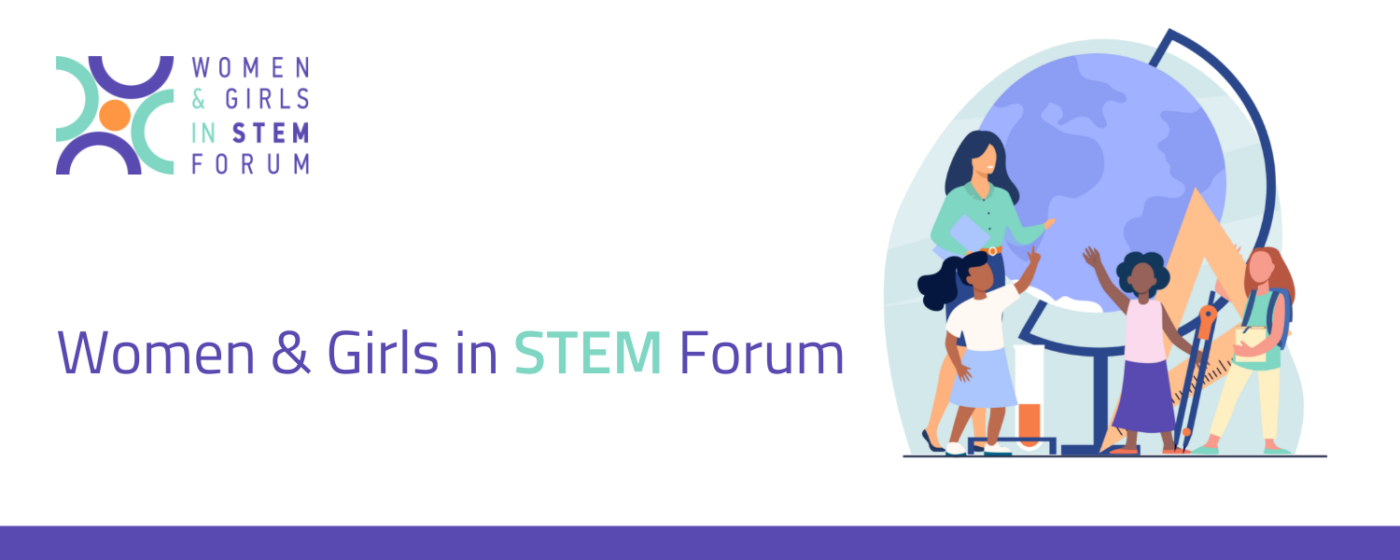Bringing together policymakers, industry leaders, and students to inspire change
On 28 October 2021, the first edition of the Women and Girls in STEM Forum gathered over 400 policymakers, researchers, industry leaders, secondary school students, and teachers to discuss gender equality in STEM and ICT disciplines.
The Women and Girls in STEM Forum is organised by the Girls Go Circular project led by EIT RawMaterials and managed together with EIT Manufacturing, EIT Climate-KIC, and EIT Food. The EIT Community creates a collaborative environment to develop solutions and accelerate Europe’s efforts in gender equality.
Bridging the gender gap in STEM
During the High-level Panel, Antoaneta Angelova-Krasteva, Director at the European Commission’s Directorate-General for Education, Youth, Sport and Culture (DG EAC), stressed the crucial role of women in promoting the green and digital transitions. Currently, only 24% of tech entrepreneurs in the EU are women, which leads to an immense loss of potential skills and opportunities for economic growth and innovation.
Jana Kolar, Director of CERIC-ERIC, reported how gender bias becomes stronger as research careers progress: “when it comes to full professorships, the gap is immense”. An adequate representation of women in Executive Boards and leading positions is necessary to generate a mindset shift.
“If we can change the way we see it, then we can change the way it is”, said Maryia Gabriel, European Commissioner for Innovation, Research, Culture, Education and Youth, during her keynote.
To that end, Adam Warby, Chairman of JA Europe, stressed the importance of creating metrics and targets about gender equality in companies – “rewrite job descriptions and ads to be more inclusive, have women represented in the hiring boards”.
Watch the Women and Girls in STEM Forum highlights video to see some of the best event moments.
EU initiatives reinforce efforts in gender equality
Several EU initiatives are already promoting gender equality in key areas, including the EU STEM Coalition, European Code Week, the Digital Education Action Plan and the Women@EIT network. Nonetheless, gender stereotypes persist, leading to missed opportunities to increase innovation, diversity, and economic growth in the EU. Therefore, it is essential to address the issue throughout the whole education and career impact chain.
Examples, role models and mentors are needed to show the relevance of STEM subjects to tackle the socio-environmental challenges that are affecting the world. As emphasised by Outi Slotboom, Director for Competitiveness and European Semester at Directorate-General for Internal Market, Industry, Entrepreneurship and SMEs (DG GROW): “you can do so much with science that is important to society!”
Girls Go Circular project promotes diversity in STEM and ICT
The Women and Girls in STEM Forum also celebrated the participation of thousands of girls and boys from all over Europe in the Girls Go Circular project, who are learning about the circular economy and deconstructing stereotypes. During the event, students had the opportunity to interact with inspirational mentors – women in leading positions in different fields – from their respective countries, who inspired them to embrace their dreams free from societal or cultural stereotypes.
Students also shared their views on gender equality in STEM and ICT through a dedicated video contest. The Polish team from Liceum Ogólnokształcące Nr. 1 im. J. Smolenia won the first prize with an original take on “The Matrix“.
Stay tuned for updates on the Girls Go Circular project and the second edition of Women and Girls in STEM Forum by following the project on Twitter, Instagram, or LinkedIn!
Girls Go Circular will continue reducing the gender gap in STEM and ICT by supporting over 8000 secondary school girls in eight European countries by the end of 2021. By 2027, the project will empower 50 000 girls in Europe to become future STEM and ICT leaders and entrepreneurs, contributing to Action 13 – Encourage women’s participation in STEM of the European Commission’s Digital Education Action Plan.




